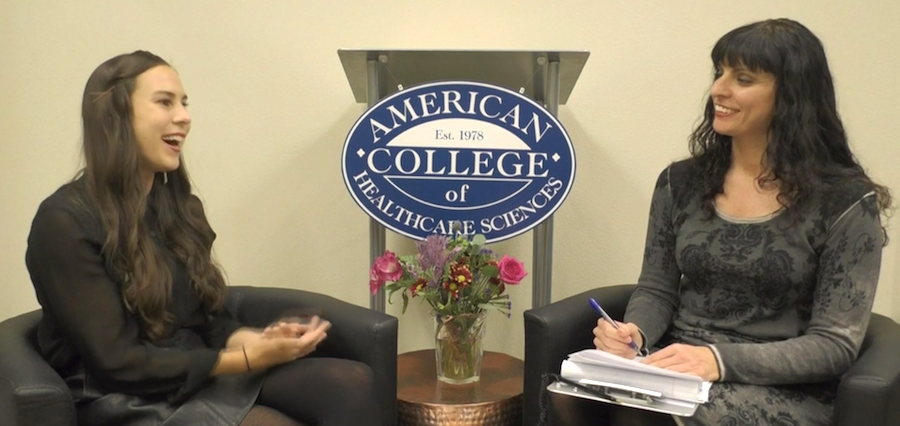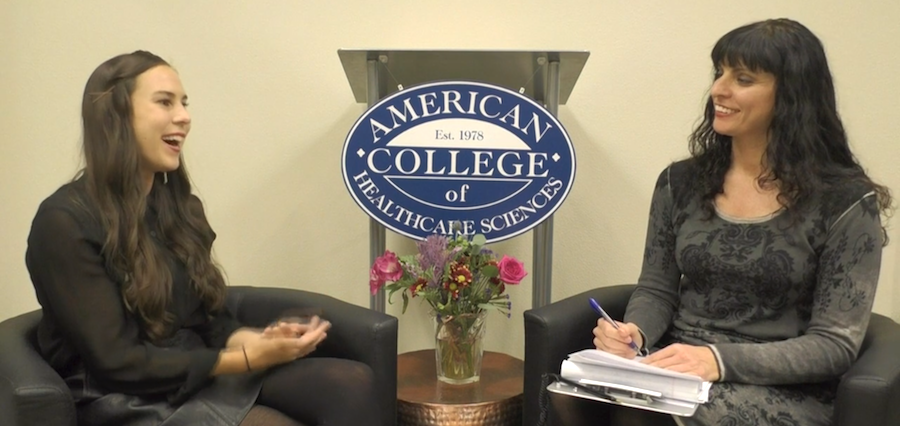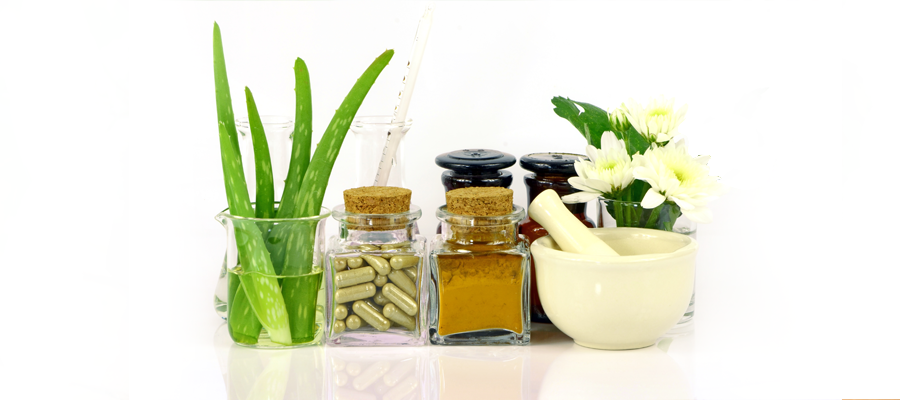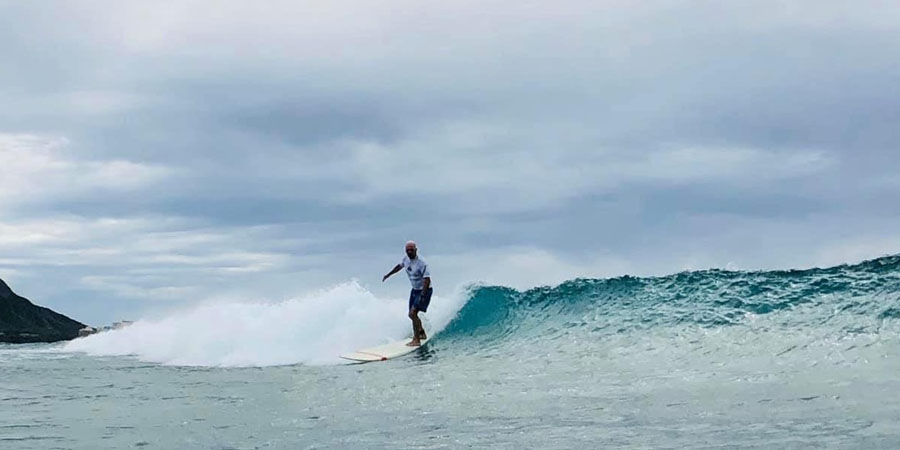
Image Copyright: American College of Healthcare Sciences | Demo Intake Interview with Amanda Lattin, RA
The intake interview is a critical process in the aromatherapist / client relationship. It may even be the most important step!
To be the best aromatherapists we can be for our clients, it’s crucial to develop a systematic and structured approach to determine which essential oils to use with which client and how to measure the outcomes.
It’s important to ask and answer the question why. Why did you suggest that essential oil or blend? Asking why encourages the aromatherapist to be mindful of their professional rationale. If you have a connection to your own process, your eventual outcome will hold more meaning, help you learn, and support the client.
And the aromatherapy client intake interview is where it all begins. It’s the “getting to know you” stage.
Having strong strategies for client intake interviews and support plans will enable you to have more useful outcomes information. You’ll be more confident when you eventually write client case study reports.
So what does it take to have a successful intake interview? I’ll be digging deep into this subject in our upcoming Aromatherapy Boot Camp in Kona, HI this November, but if you can’t make it, here’s a quick teaser of 5 sure-fire steps to a successful aromatherapy intake interview:
1. Discuss informed consent with your aromatherapy client.
Before moving forward with a consultation session, you must discuss Informed Consent with your client. Informed Consent is:
- A key dialogue between client and consultant (aromatherapist).
- Discussion between the client and consultant (aromatherapist) about the nature of their interaction, including possible benefits, risks, uncertainties, alternatives.
- A dialogue about the role of both the consultant (aromatherapist) and the client in their exchanges and collaborative interactions.
- The foundation for client safety and education.
2. Explain your role as an aromatherapist to your client.
This is another must-not-skip step. Aromatherapists must clearly and accurately define their credentials, what they can and cannot do for their client, and describe their role as an aromatherapist.
Successful aromatherapists inform the client the necessity of communication about any medications or supplements they are taking, any medical conditions, as well as clear and open communication with their other health care providers about their use of aromatherapy.
You must explain there can be no guarantee of outcomes from an aromatherapy consultation.
One way you can do this is through a posted notice or handout that states what an aromatherapist does and does not do. Here’s a quick example:
- Aromatherapists, unless otherwise licensed to do so, do not diagnose, treat, nor purport to cure disease.
- Essential oils are used to support the optimal functioning of the structure and function of the body.
- The primary goal of the aromatherapist is to focus on health and wellness, and educating clients around the safe and effective use of essential oils and aromatherapy to promote optimal function of body systems.
- Holistic aromatherapy also promotes harmony and balance in each person’s physical, emotional, and spiritual well-being.
3. Utilize active and cathartic listening techniques to uncover the client’s concerns.
This seems like a simple communication skill, but it’s not always easy! Truly listening to someone builds trust and a sense of safety. If a client feels they’re not being heard, they may shut down.
Active listening requires you to really pay attention to what your client is saying. Avoid interrupting or asking follow-up questions until the client has finished talking.
Take advantage of pauses by staying quiet (but friendly); this often allows clients to offer more information they may not share otherwise.
Don’t assume you understand the root cause of an issue. Listen carefully to the client’s stories and concerns until you’ve gathered as many facts as possible.
Here are some more tips on how you can strengthen your “listening muscle.”
4. Complete a holistic intake form with your client to document their health history.
An intake form is a simple way to gather as many facts as possible about your aromatherapy client’s history. These forms generally begin with the head and work down the body through the systems. “Head to toe.”
The client can fill out an intake form in the waiting room before your session or you can fill it out together during the intake interview. Many practitioners now send an email with a PDF for the client to fill out before they get to the office, saving more time for the in-person session.
5. Practice effective note taking skills during the interview.
Have you ever been to a practitioner (a doctor, counselor, nutritionist…) and by the second appointment, they seem to have forgotten everything about you? That’s a pretty disappointing feeling and undermines trust.
Good note taking is important. An easy way to do this while also staying present is by recording the session (with your client’s permission) and writing up notes after.
If you prefer to take notes during the session, stay present by making sure to look up, make eye contact, and ask mindful questions. Take down notes on key concerns. I like to use the S.O.A.P Notes approach:
S.O.A.P. Notes Approach
-
Subjective – Impression’s of client or information about or reported by client. Can include samples/paraphrasing of client’s own wording or voice
-
Objective – All pertinent measurable information either gathered during the interview or by other practitioner(s).
-
Assessment (Analysis) – Practitioner’s analysis of the information gathered, observations, and interactions with client. Should be based on evidence gathered and follow clear rationale.
-
Plan – Should include the details of the support plan for the client as well as follow up plans.
Intake interviews are the gateway to a healthy aromatherapist / client relationship. They nurture trust and allow you to gather the data you need to support the client. Plus, every interview is a learning experience in your aromatherapy career!
Are these tips helpful to you? What other tips or advice would help you thrive in your holistic health career? Let us know in the comments!
Ready to dive further into this topic? Then, join me in stunning Kona, Hawaii for an intensive Aromatherapy Bootcamp, where ACHS Founding President Dorene Petersen and myself will be speaking on subjects like intake interviews, case studies, essential oil blending, essential oil chemistry, and more.
This article is for informational purposes only. It is not intended to treat, diagnose, cure, or prevent disease. This article has not been reviewed by the FDA. Always consult with your primary care physician or naturopathic doctor before making any significant changes to your health and wellness routine.
Disclosure of Material Connection: I am the Aromatherapy Department Chair of American College of Healthcare Sciences (ACHS), the Institution that publishes this blog. However, all opinions are my own. This blog may contain affiliate links. I am disclosing this in accordance with the Federal Trade Commission’s 16 CFR, Part 255: “Guides Concerning the Use of Endorsements and Testimonials in Advertising.”






